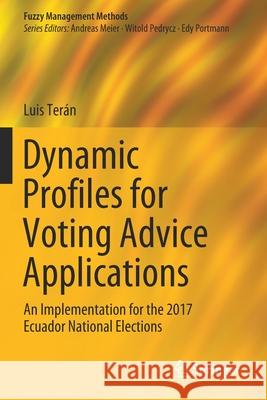Dynamic Profiles for Voting Advice Applications: An Implementation for the 2017 Ecuador National Elections » książka
topmenu
Dynamic Profiles for Voting Advice Applications: An Implementation for the 2017 Ecuador National Elections
ISBN-13: 9783030240929 / Angielski / Miękka / 2020 / 167 str.
Dynamic Profiles for Voting Advice Applications: An Implementation for the 2017 Ecuador National Elections
ISBN-13: 9783030240929 / Angielski / Miękka / 2020 / 167 str.
cena 402,53
(netto: 383,36 VAT: 5%)
Najniższa cena z 30 dni: 385,52
(netto: 383,36 VAT: 5%)
Najniższa cena z 30 dni: 385,52
Termin realizacji zamówienia:
ok. 16-18 dni roboczych.
ok. 16-18 dni roboczych.
Darmowa dostawa!
Kategorie:
Kategorie BISAC:
Wydawca:
Springer
Seria wydawnicza:
Język:
Angielski
ISBN-13:
9783030240929
Rok wydania:
2020
Wydanie:
2020
Numer serii:
000456281
Ilość stron:
167
Waga:
0.27 kg
Wymiary:
23.39 x 15.6 x 1.04
Oprawa:
Miękka
Wolumenów:
01
Dodatkowe informacje:
Wydanie ilustrowane











